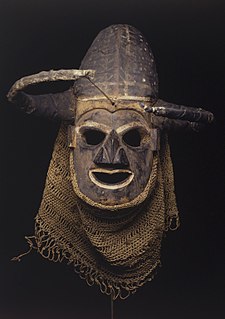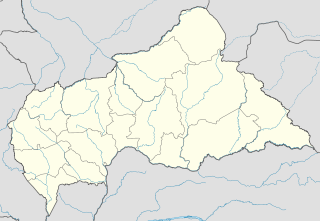
Tara Margaret Charity MacLean is a Canadian singer and songwriter. Her hit songs as a solo artist include "Evidence", "If I Fall", and a cover of the Christmas song "Light of the Stable". She was a member of Atlantic Canadian regional group, Shaye with Kim Stockwood and Damhnait Doyle from 2002 to 2007.
"A Hard Rain's a-Gonna Fall" is a song written by Bob Dylan in the summer of 1962 and recorded later that year for his second album, The Freewheelin' Bob Dylan (1963). Its lyrical structure is modeled after the question and answer form of traditional ballads such as "Lord Randall".

The Yaka are an African ethnic group found in southwestern Democratic Republic of the Congo, with Angola border to their west. They number about 300,000 and are related to the Suku people. They live in the forest and savanna region between the Kwango River and the Wamba River. They speak the Yaka language).

Paice Ashton Lord was a short-lived British rock band featuring Deep Purple band members Ian Paice and Jon Lord with singer Tony Ashton. The band was formed in 1976, released its only album in 1977 and broke up in 1978.

Tramaine Aunzola Richardson, known professionally as Tramaine Hawkins, is an American award–winning Gospel singer whose career spans over five decades. Since beginning her career in 1966, Hawkins has won two Grammy Awards, two Doves, and 19 Stellar Awards.

Another View is an outtakes compilation album by the Velvet Underground. It was released in 1986 by Verve Records and is composed of material recorded between 1967 and 1969.

Mary Lou Lord is an indie folk musician, busker and recording artist.

Osmium is the debut album of American funk band Parliament, led by George Clinton. The album has a psychedelic soul sound with a spirit of experimentation that is more similar to early Funkadelic than the later R&B-inspired Parliament albums. It was originally released in July 1970 on Invictus Records. The original vinyl release contained a glossy lyric sheet.
Raise Your Spirit Higher - Wenyukela is an album by the South African isicathamiya group Ladysmith Black Mambazo. It was released on 5 March 2003 and was the British release of the group's South African album of the same name. It was later re-released in North America in 2004. The album was expected to have a solemn touch.

Edwin Reuben Hawkins was an American gospel musician, pianist, choir master, composer, and arranger. He was one of the originators of the urban contemporary gospel sound. He was probably best known for his arrangement of "Oh Happy Day" (1968–69), which was included on the "Songs of the Century" list. The Edwin Hawkins Singers made a second foray into the charts exactly one year later, backing folk singer Melanie on "Lay Down ".

Mbokassa is a village in Mbaïki district in the Lobaye region in the Central African Republic southwest of the capital, Bangui.

The Engan, or more precisely Enga – Southern Highland languages are a small family of Papuan languages of the highlands of Papua New Guinea. The two branches of the family are rather distantly related, but were connected by Franklin and Voorhoeve (1973).

Delphine Batho is a French politician, member of the National Assembly and former Minister of Ecology, Sustainable Development and Energy.
Aka, also known as Yaka or Beka, is a Bantu language spoken in the Central African Republic and Republic of Congo, along the Ubangi River dividing the two countries.

"Crying in the Rain" is a song by the English hard rock band Whitesnake. The song was originally released on the group's 1982 album Saints & Sinners, but was re-recorded on the group's 1987 multi-platinum album Whitesnake. The song was inspired by singer David Coverdale's divorce.
Bantu peoples are the speakers of Bantu languages, comprising several hundred indigenous ethnic groups in Africa, spread over a vast area from Central Africa across the African Great Lakes to Southern Africa.
Oleseng Shadrack Shuping was a South African gospel singer.

Ricky T. Dunigan, better known by his stage name Lord Infamous, was an American rapper from Memphis, Tennessee. He was a co-founder of Three 6 Mafia. He was the older brother of DJ Paul. His lyrics touched on macabre subjects such as Satanism, mass murder, and torture, along with more traditional themes such as sex and drug use.
The Suku people or Basuku (plural) are an ethnic group of Bantu origin who traditionally inhabit the south-western Democratic Republic of the Congo and north-western Angola. As of 2017, there are believed to be about 200,000 people who identify as Suku, many living in the Congo's Kwango Province.
This page is based on this
Wikipedia article Text is available under the
CC BY-SA 4.0 license; additional terms may apply.
Images, videos and audio are available under their respective licenses.













